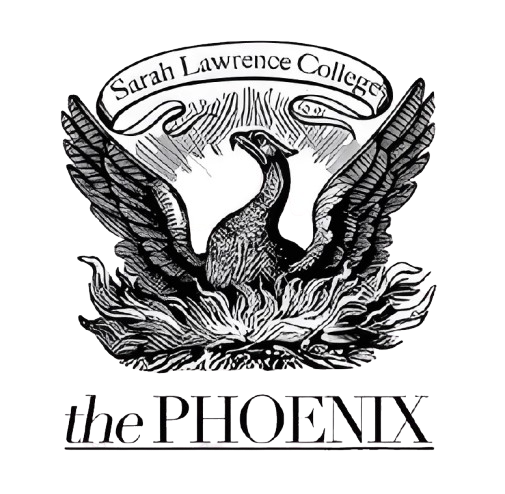SLC Students Push New President for Campus Sustainability
AL GORE IN HIS NEW FILM, AN INCONVENIENT SEQUEL: TRUTH TO POWER. TAKEN FROM https://inconvenientsequel.tumblr.com/gallery .
With the inauguration of Cristle Collins Judd earlier this year, environmental student organizations are asking for the new president to consider adding more sustainable practices to the Sarah Lawrence community.
Earlier this year, student organizations Enviro-Bio Club, Environmental Awareness Organization, Trash Club and the Warren Green Sustainability Co-Op drafted a letter detailing new eco-friendly policies the college can enforce this coming year. The letter was shared with the new Sustainability Committee which is part of the Committee on Student Life.
“We want to sit down with this new administration coming in and tell them what we care about as the environmental organizations on campus” says Environmental Awareness Organization co-chair Lily Frenette, ‘18. “At Sarah Lawrence, if we want to be on the forefront of being progressive and doing things that will benefit the world at large, part of that includes being sustainable and caring for our earth.”
The organizations, which have informally created an Environmental Council, have outlined four major focuses for the college to implement in the coming year. These focuses, which consist of Food Services, Biodiversity, Petitions and Institutional Backing, Sustainability Training and Education and the Establishment of the Sustainability Committee, would include new implementations of campus wide composting, sustainability workshops and a plastic bag tax for students using plastic bags from the Pub and Hill2Go.
Additionally, the letter claims that a more sustainable campus will lead to wider recognitions from environmental groups such as the Sierra Club, making the college a competitor against other eco-friendly schools.
“Sarah Lawrence College has a crucial responsibility, both as an institution with a sizeable ecological footprint and as a place of education for future leaders, to ensure that our effect on the environment is addressed to the greatest possible extent,” reads the letter. “Getting on this list would show that Sarah Lawrence values sustainability.”
On Oct. 26, SLC participated in a nation-wide viewing and live Q&A with former vice president and environmentalist Al Gore for his new documentary, An Inconvenient Sequel.
“[The film] did a really good job of getting people who wouldn’t be typically engaged in the environment to see that it’s really affecting us,” says Tamanna Arora, ‘21. “It’s not something that’s happening in the future, it’s happening now.”
The subsequent Q&A that followed primarily addressed questions regarding how students could strive to implement more sustainable policies on their own campuses, something students like Arora would like to see happen at SLC.
“Regardless of who's working towards [campus sustainability], it’s going to help everyone,” she says. “If we can help delay whatever is happening, it’s only going to help us.”
While the Environmental Council were the first to make a call for sustainable action around campus, they have since gathered support from students.
“In relation to what most of our students’ politics are, I think that we’re really behind on [environmentally friendly policies],” says David Levin ‘20. “As wordly of a student body as we have, you would think that we would have better practices, both institutionally and [individually].”
Furthermore, the Environmental Council is looking to educate the greater Yonkers community be implementing education programs in the surrounding SLC area.
“Sustainability training should occur during first-year orientation, with subsequent sessions for all students conducted throughout the year,” reads the letter. “These discussions would work in tandem with Realtalk, Reslife (Co-Ops), specific professors and the greater Yonkers community.”
While the letter outlines specifics policies and actions the college can take to ensure a more environmentally conscious, students like Levin also have ideas in order to make already-available alternatives more accessible and convenient to students.
“Having a better disposal system available in the dorms would be a great option,” says Levin. “I have trash that I could be sorting my dorm - the fact that I have to be outside and sort [trash] there, I’d rather have it available on the floors of each building.”
For those looking to make their own differences on campus, Frenette recommends reducing one’s waste and using reusable products whenever possible.
“If you’re getting coffee, it’s really easy to bring a to-go mug with you instead of using disposable mugs,” she says. “The bottled water industry is terrible -- we have a lot of water fountains on campus, it’s pretty easy to carry a [reusable water bottle] with you and fill up.”
While neither Judd nor the college have made a public response to the letter, students are clearly impassioned about making SLC a more friendly community for all, including the earth.
"If you are paying attention to what’s going on, you should be making conscious decisions through your institutions,” says Levin. “Decisions that move towards being more environmentally conscious.”
Bella Rowland-Reid '21
CORRECTION: An earlier version of this article published on Sunday, Nov. 12 incorrectly stated that the draft letter crafted by the Environmental Council was shared with the College President. The letter was, in fact, only shared with the Sustainability Committee.

